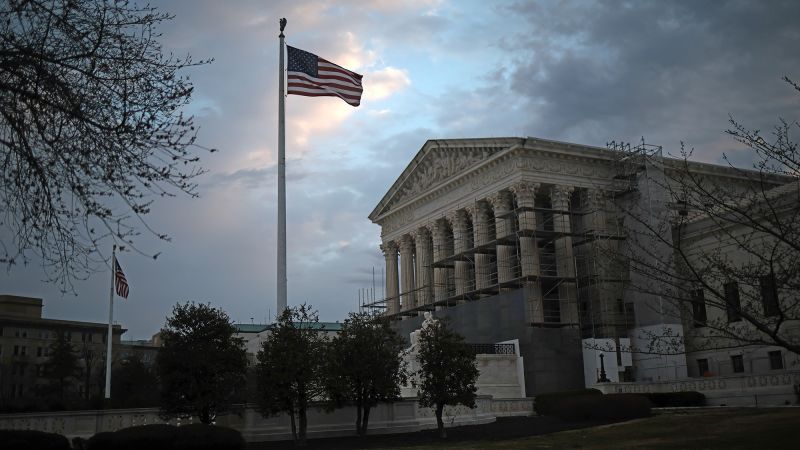
Supreme Court to debate if states may tax Catholic Charities and religiously affiliated groups
CNN
The Supreme Court will hear arguments Monday over whether states may require religiously affiliated groups like Catholic Charities to pay unemployment taxes in a case critics say could put more than 1 million US workers at risk of losing benefits.
The Supreme Court will hear arguments Monday over whether states may require religiously affiliated groups like Catholic Charities to pay unemployment taxes in a case critics say could put more than 1 million US workers at risk of losing benefits. In the first religion-centered appeal the 6-3 conservative Supreme Court has heard in nearly two years, the Catholic Charities Bureau and four affiliate organizations say Wisconsin violated the First Amendment’s religious protections by denying exemptions from the taxes. Conservative justices in recent years have blurred the line that once clearly separated church from state. They have done so on the theory that some government efforts intended to comply with the First Amendment’s establishment clause have been overbroad and discriminated against religion. The court has expanded the circumstances under which taxpayer money may fund religious schools, for instance, it allowed a public high school football coach to pray on the 50-yard line and ruled that Boston could not block a Christian group from raising a flag at City Hall. A decision, expected by the end of June, could have broad implications if it sweeps widely enough to cover other religiously affiliated organizations, such as hospitals. It may also limit the government’s ability to look behind the pulpit to assess whether groups are, in fact, religious or only claiming to be in order to avoid taxes. “Taking religious organizations at their word on the religiousness of their activities makes it hard for the government to challenge if those activities are actually religious,” said Luís Calderón Gómez, a professor at the Benjamin N. Cardozo School of Law at Yeshiva University who specializes in tax law.

Attorneys in the case of Bryan Kohberger are set to face off in a Boise, Idaho, courtroom Wednesday over the admissibility of key evidence – including the recording of an emotional 9-1-1 call and the defendant’s alibi – in his approaching death penalty trial for the killings of four University of Idaho students in 2022.

Attorney General Pam Bondi railed against a federal judge who partially blocked enforcement of President Donald Trump’s executive order targeting the Jenner & Block law firm, telling government agencies to stop enforcing the order despite the “blatant overstepping of the judicial power,” while suggesting that the agencies are still permitted “to decide with whom to work.”





















 Run 3 Space | Play Space Running Game
Run 3 Space | Play Space Running Game Traffic Jam 3D | Online Racing Game
Traffic Jam 3D | Online Racing Game Duck Hunt | Play Old Classic Game
Duck Hunt | Play Old Classic Game









